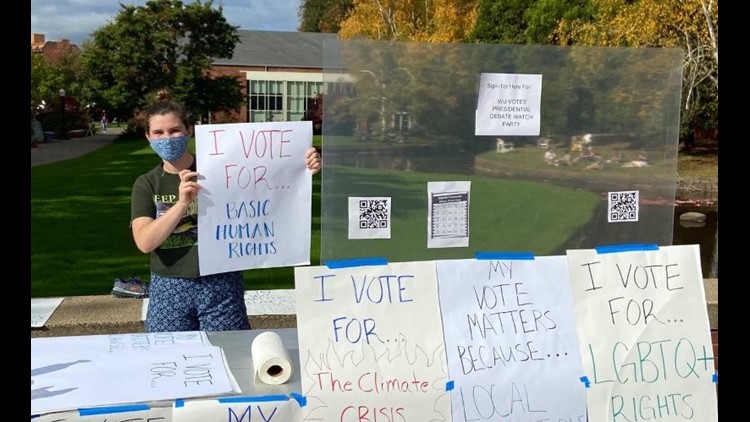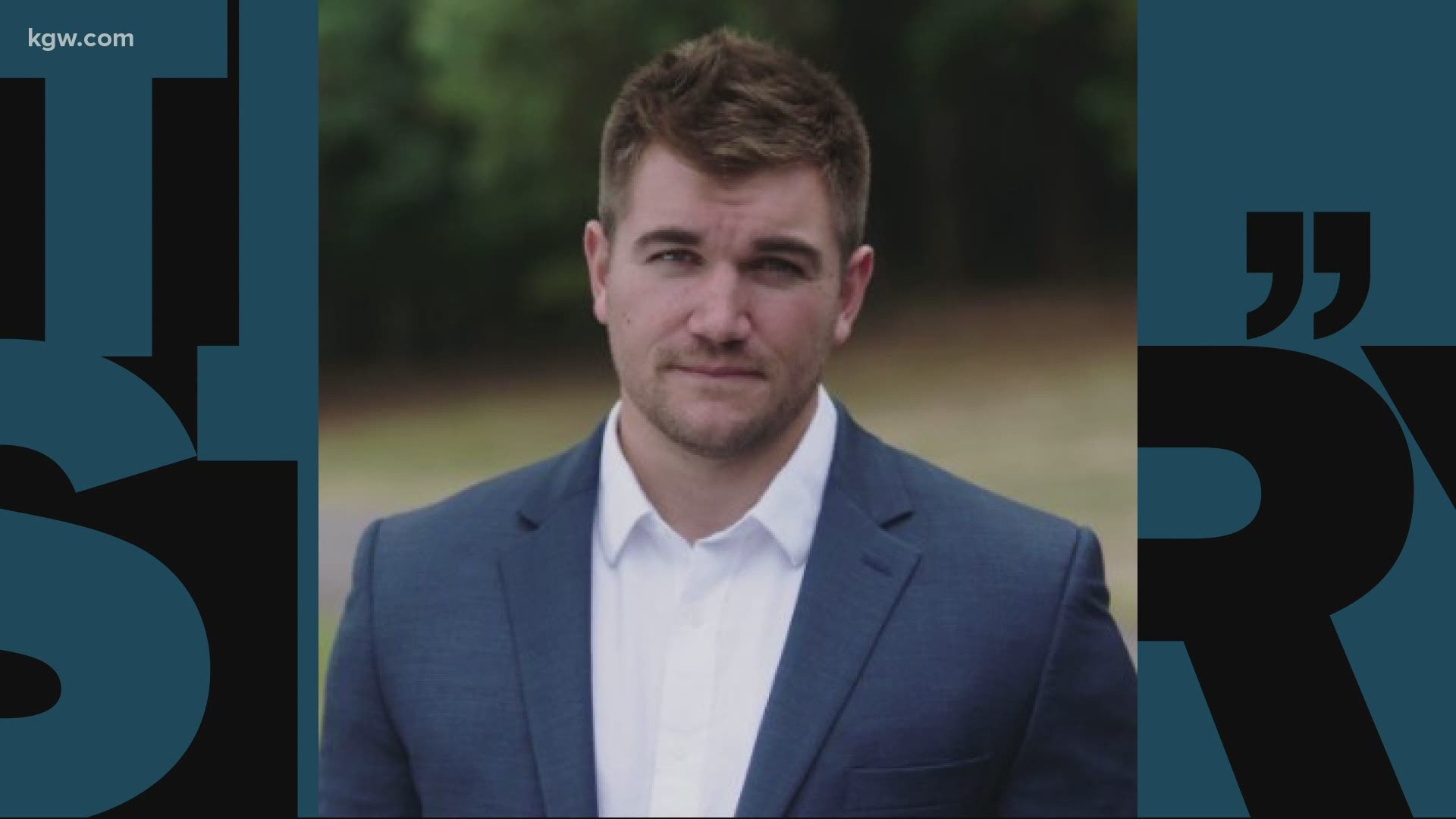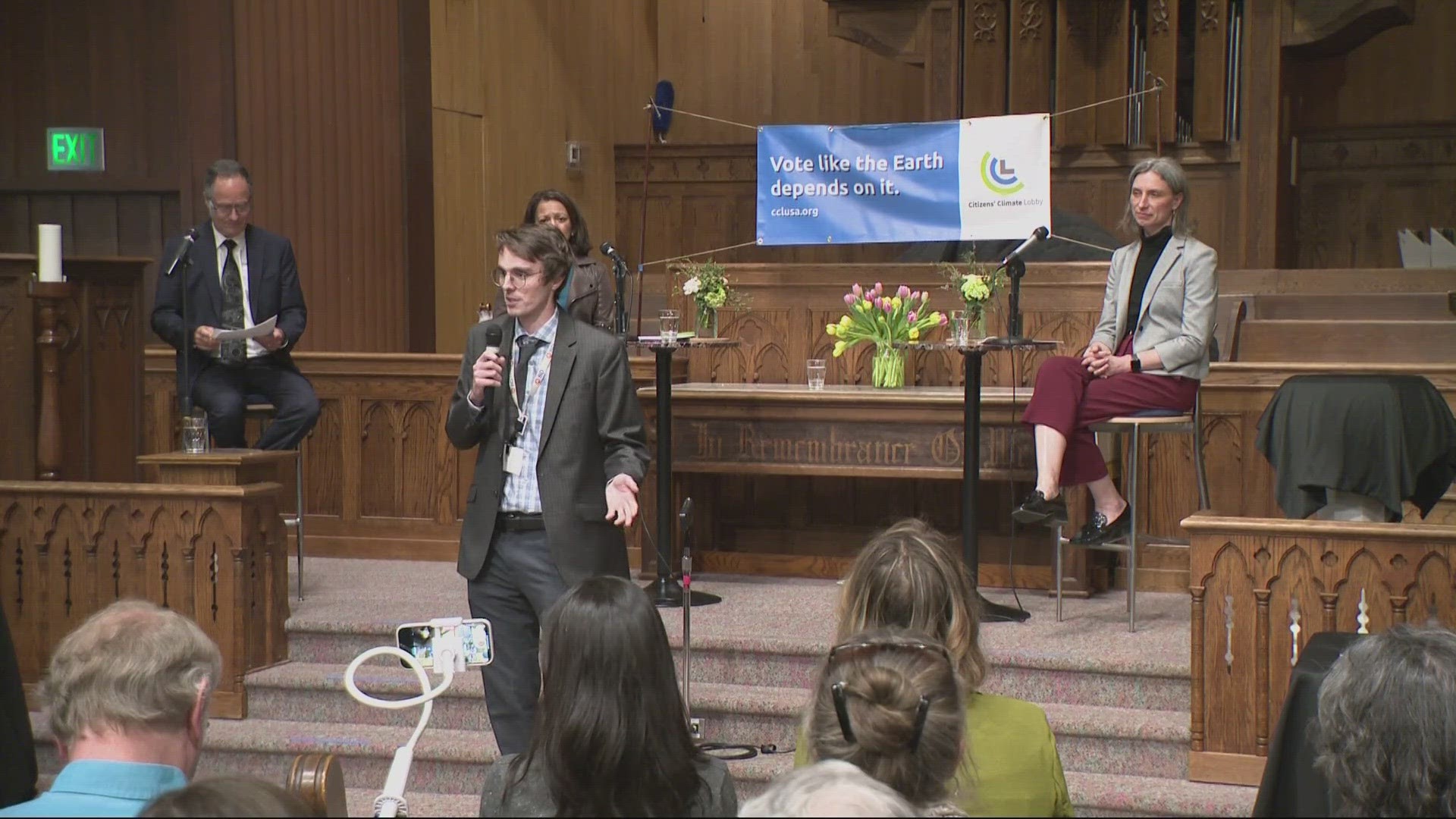PORTLAND, Ore. — On election night, instead of attending campus-wide watch parties, college students will attend virtual events and watch the results roll in from the comfort of their dorm rooms. The stakes are high for this increasingly engaged population.
“It just feels like everybody's holding their breath,” Sarah Dean, a student at Willamette University, said.
College students face extra challenges casting their ballot due to the pandemic and absentee voting regulations in some states. Yet, like most other demographics, they are voting early at nearly unprecedented rates.
As of Oct. 29, Oregon youth ages 18-29 have cast over 169,000 votes by mail, according to the Center for Information and Research on Civic Learning and Engagement (CIRCLE). This is a jump from 2016, when only about 49,000 young people in Oregon had voted by this time.
Though this does not account for the many students attending school in Oregon, but voting absentee in their home states. Nationwide, more than 7 million voters under 30 have voted early or by absentee ballot. This group is on track to vote at higher rates than in the historic 2008 election, according to the Harvard Institute of Politics (IOP) Youth Poll.
How are Oregon college students mobilizing?
Several Oregon students said that everyone they know is voting, whether this be in Oregon or their home state. Students are sharing voting information on social media, and campus organizations have mobilized to help students register to vote and navigate the absentee ballot process.
In a number of states, including several battlegrounds, Republican lawmakers have taken actions — like enacting restrictive ID rules and voter registration requirements — that make it more difficult for college students to vote.
Dean, the Willamette University student, said that these new restrictions are coupled with the many challenges college students already face voting, such as having multiple addresses and being registered in different states than their peers.
“Everybody makes it out to seem that voting is so easy, and yes, maybe when you're an adult and you only have one address, but it gets complicated when you have a residential address and a PO box (at school),” Dean said.
To try to solve this problem and get voting resources out to students, Dean created the organization “Willamette University Votes.”
Some students may still be missing voter registration deadlines and having ballots sent to the wrong address or getting lost in the mailroom, but Dean said that the majority of students have had few problems voting early and by absentee ballot.
Nick Gothard, a Lewis & Clark College student, is an organizer for the Win Justice PAC and works to get the vote out in the battleground state of Wisconsin. He said he has seen increased interest in phone banking this year.
“I've struggled previously to get people in on this opportunity,” Gothard said. “But this year, I've seen a much larger increase in substantial activism, where it's not just posting something on the Instagram story.”
University of Oregon’s College Republicans have also been signing up students for phone banking, the club’s president Will Christensen said. They have been active supporters of Alek Skarlotos, who is competing against Peter Defazio (D-Springfield) in Oregon’s 4th District congressional race.
Where are Oregon college students voting?
At public universities like UO, Oregon State and Portland State, the majority of students yield from Oregon and vote in the state. They may register in either their hometowns or their college towns.
Although out-of-state students can register in either their home state or Oregon, many of these students — some of which attend smaller schools like Lewis & Clark or Willamette — said they stayed registered in their home states because they feel their vote will make more of a difference.
According to the IOP poll, Democratic nominee Joe Biden is supported by 63% of voters under 30 that are likely to vote, while President Donald Trump is only supported by 25%.
Oregon Democratic students, like Sophie Concannon at PSU, said they are voting in their home states because they are more competitive than Oregon, which will likely go blue. Concannon is from Maryland and chose to stay registered there.
“Students at PSU tend to lean more liberal, and they're coming into liberal Portland and their hometowns might not be like that, so they feel it's more important to stay registered there to represent their voice,” Concannon said.
Students from swing and battleground states in particular are driven to vote at home. Paige Myers, a junior at Lewis & Clark, chose to stay registered in Pennsylvania in a majority Republican county.
Though Myers is a Democrat, she was raised in a conservative family and feels more connected to Pennsylvania politics.
“I find myself paying more attention to politics back home just because it affects my family so much and because such a big part of their identity is their conservatism,” Myers said. “I definitely see politics differently (than my peers) because of my upbringing.”
Other students — like Nick Townsend at PSU — said that they stayed registered in their home state because they plan to return there after college, rather than staying in Oregon.
“I'm planning to return to Colorado after I graduate ... so it made sense for me to stay registered in the state instead of switching it a couple times,” Townsend said.
Townsend said he’s less concerned about the presidential race in Colorado than the Senate race between Sen. Cory Gardner (R-Colorado) and former Democratic Gov. John Hickenlooper — one of the Senate seats that experts say is likely to flip.
How do college students engage with Oregon politics?
Though many out-of-state students choose to stay registered in their home states, many of these students said they are paying more attention to Oregon politics this year with the COVID-19 pandemic and the Black Lives Matter protests. Concannon said this almost makes her regret her registration decision.
“If I were registered in Oregon I'd be able to vote in the Portland mayoral (race), which is something that's important to me now because I live here,” she said.
Sienna Kaske, a senior at OSU, said that she actually stayed registered in her hometown, Portland, so she could write-in Teressa Raiford for Portland Mayor and vote for Portland’s various measures.
“Portland is still home for me, it's where my family is and where I grew up,” Kaske said via email. “Just because I'm living in a different area doesn't mean I give up on the community that raised me."
But some students start to feel an allegiance to their college towns. Langley Black, a senior at OSU, is from Bend but registered in Corvallis.
“I made sure I was voting in Corvallis as a community member here almost 10 out of 12 months of the year,” Black said. “I believe it’s my duty to vote here as a student voice that is also connected to the wider Corvallis community as a whole.”
UO’s College Republicans have pushed their members to register in Lane County to vote for candidates like Skarlatos for the 4th congressional district. Christensen, the club’s president, and an Oregon resident, has been registered in Lane County since he started school.
“There’s more important elections happening here,” he said. “I figured I would be here for four years, and I don’t really live out with my parents in Tigard.”
How are students feeling going into the election?
Many students said that there is a high level of anxiety on college campuses going into the election. Gothard, at Lewis & Clark, said that for young people already dealing with the extra stresses of the pandemic, voting and participating in the political process can feel like a “hurdle.”
“I think that also stems from the fact that Joe Biden isn't exactly a candidate the young people are inspired and excited by,” Gothard said. “We'll support him, sure, but it's difficult to have a lot of enthusiasm.”


“I don't know if anyone is absolutely optimistic — I think that most of us learned our lesson from 2016,” Gothard said. “In the last few months, it's felt like we as young people have been punched and punched again by politics.”
Dean, at Willamette, said that she is trying to not get her hopes up for the election results.
“I’m expecting Trump to win but will be pleasantly surprised if Biden does,” she said.
But Christensen, with UO’s College Republicans, is a bit more optimistic about this election.
“I always have a healthy degree of skepticism because I think that skepticism is important to really drive us to do something,” Christensen said. “But I'd say that Trump has a very, very good chance. I think there's a lot of factors that are showing that this is a lot like 2016 all over again.”
As Kaske — from OSU — puts it, “Many things are at stake with this election, but with either outcome, we will still have to advocate and continue organizing.”




